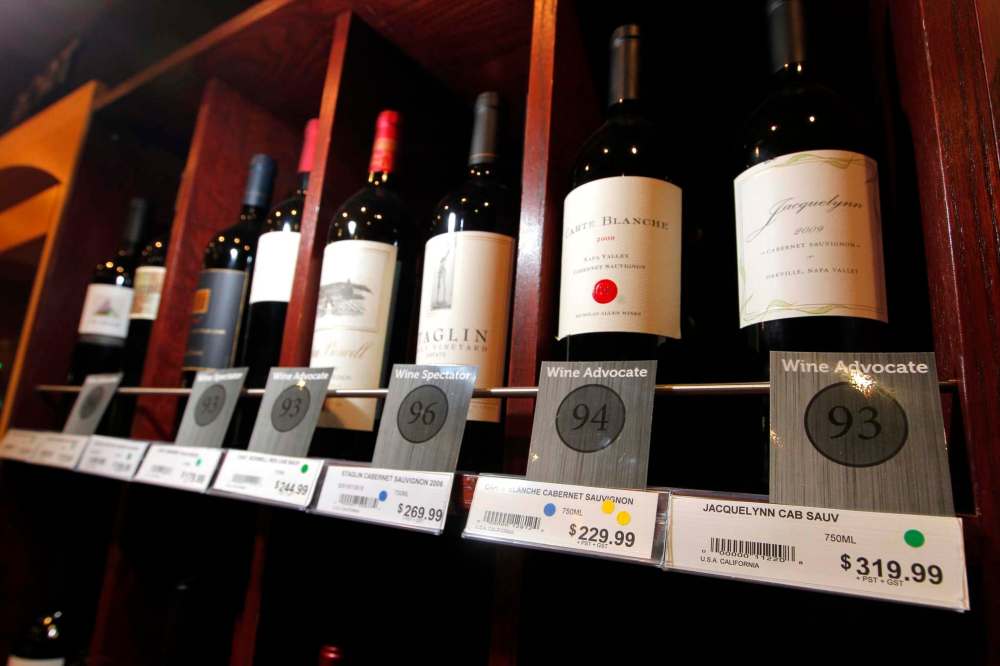A call for private spirits, beer stores
Much progress made but more is needed
Advertisement
Read this article for free:
or
Already have an account? Log in here »
To continue reading, please subscribe:
Monthly Digital Subscription
$1 per week for 24 weeks*
- Enjoy unlimited reading on winnipegfreepress.com
- Read the E-Edition, our digital replica newspaper
- Access News Break, our award-winning app
- Play interactive puzzles
*Billed as $4.00 plus GST every four weeks. After 24 weeks, price increases to the regular rate of $19.00 plus GST every four weeks. Offer available to new and qualified returning subscribers only. Cancel any time.
Monthly Digital Subscription
$4.75/week*
- Enjoy unlimited reading on winnipegfreepress.com
- Read the E-Edition, our digital replica newspaper
- Access News Break, our award-winning app
- Play interactive puzzles
*Billed as $19 plus GST every four weeks. Cancel any time.
To continue reading, please subscribe:
Add Free Press access to your Brandon Sun subscription for only an additional
$1 for the first 4 weeks*
*Your next subscription payment will increase by $1.00 and you will be charged $16.99 plus GST for four weeks. After four weeks, your payment will increase to $23.99 plus GST every four weeks.
Read unlimited articles for free today:
or
Already have an account? Log in here »
Hey there, time traveller!
This article was published 23/09/2016 (3319 days ago), so information in it may no longer be current.
There are probably more qualified minds than mine to tackle the debatable claims and selective stats in the Canadian Centre for Policy Alternative’s report, Balancing Convenience with Social Responsibility: Liquor Regulation in Manitoba. But it did get me thinking about how the retail liquor landscape in the province has changed during the last two decades to the benefit of consumers.
Disclosure: before I started writing about wine for the Winnipeg Free Press in 2005, I started in the local wine industry 20 years ago, working at three of Winnipeg’s private wine stores over the course of 10 years while paying my way through university. That was back before the government-run liquor stores (now called Liquor Marts) were even open on Sundays; working on those days in particular meant taking a hard line against the increased number of underage or intoxicated people who would try and buy alcohol. In Privatizing liquor sales a net loss (Sept. 22), the centre’s Lynne Fernandez says private outlets “want to sell as much product as possible and are not motivated to restrict access to minors or intoxicated individuals.” On the contrary — the hefty fines and penalties that would have been incurred by both me and the store for selling to underage or intoxicated people provided plenty of motivation. But I digress.
The shopping experience at Liquor Marts has significantly improved during the last two decades. On the wine side of things, in particular, the selection has increased, and product knowledge and education have improved. Not coincidentally, most of the improvements at Liquor Marts came following the introduction of private wine stores in the province (the first group opened in 1994; the second in 1999). The eight stores — six wine stores and two wine-and-food shops — have pushed Manitoba Liquor Marts to stay relevant at the retail level or risk losing market share.

For the consumer, most of the positive changes in liquor regulations in this province have involved moving away from restrictive policies.
In 2005, Manitobans were finally allowed to take unfinished wine home with them from restaurants. In 2011, diners were given the option to take their own wine to restaurants; shortly thereafter facilities such as hair salons and movie theatres were able to obtain liquor licences.
The province was among the first to allow the importation of alcohol for personal consumption to Manitoba from other provinces — including world-class wines made in B.C., Ontario, Nova Scotia and beyond that are otherwise unavailable here. In doing so they took one of the more progressive stances on the issue, and Canadian wineries are often quick to laud that decision when I visit their facilities.
Things have been slower on the beer side of things, but they’re moving in the right direction. For a long time, prohibitive regulations and excessive red tape surrounding the opening of commercial beer-making facilities left the province with just two breweries making beer and saw Manitoba as the only province without a brew pub. The recent easing of restrictions has resulted in an explosion of privately owned craft breweries and brew pubs run by passionate (and thirsty) entrepreneurs during the last 18 months.
Wine-wise, private stores have resulted in a greater number of products being sold by knowledgeable staff at both private and government-run stores. Allowing free-standing, privately run beer and spirits stores — or allowing private wine stores to expand into beer and spirits — would benefit consumers in a similar fashion. (It would mean removing the arcane portion of the law requiring beer vendors be attached or adjacent to hotels.)
The introduction of private wine stores in Manitoba didn’t result in drunken lawlessness in the streets. We deserve the benefit of the doubt again.
Ben MacPhee-Sigurdson writes about wine, beer and spirits for the Free Press.
ben.macphee-sigurdson@freepress.mb.ca





